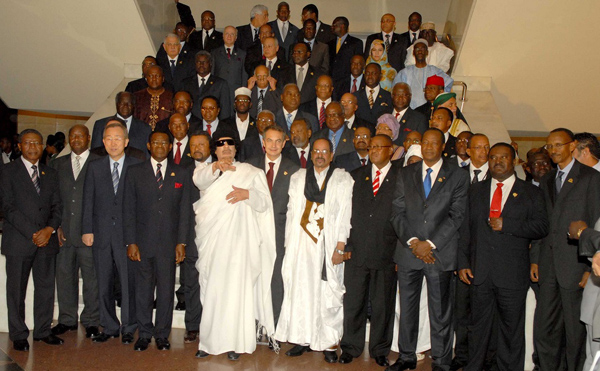By Betre Yacob
 Since the beginning of October, the international criminal court (ICC) based in the Hague has been a very emotionally enthused discussion agenda in Africa. Disappointed with the development made by African leaders to withdraw from the court, millions of Africans have been expressing their concerns over the issue through different media and social networks. They have criticized the Anti ICC campaign, and called on the governments to refrain from taking a shameful action.
Since the beginning of October, the international criminal court (ICC) based in the Hague has been a very emotionally enthused discussion agenda in Africa. Disappointed with the development made by African leaders to withdraw from the court, millions of Africans have been expressing their concerns over the issue through different media and social networks. They have criticized the Anti ICC campaign, and called on the governments to refrain from taking a shameful action.
The worry of Africans regarding the ICC is not surprising, and is understandable. The court matters them very much more than anyone else since it is the only resort to deliver justice for heinous crimes against humanity committed by rootless brutal dictators, who haven’t yet allowed an independent national judicial systems to be established and strengthened. It is the only permanent criminal court with the authority to act when their nation with jurisdiction is unable or unwilling to investigate or prosecute.
The Anti ICC campaign of the African leaders is not a new phenomenon. It dated back to the end of 2007. However, it has been taken seriously by African Union (AU) and leaders of its member states following the arrest warrant issued on the Sudanese leader Omar Hassan Ahmed Bashir, who is accused of crimes against humanity in the Darfur region, and the charges against the Kenyan President Uhuru Kenyatta and Deputy President William Ruto for crimes committed in the ethnic violence that followed a disputed 2007 election. Today, except South Africa, Nigeria, Malawi, and Ghana, all African Union countries have totally refused to cooperate with the court.
The African leaders primarily raise the issue of fairness to condemn the court. They claim that the court intentionally targets Africans. They ask: why almost all of the cases investigated by the court are from Africa? They argued that the court is being used as a political instrument of the west. Surprisingly, they also sometimes try to relate the issue to race and related issues.
However, not only western governments and the court but also Africans do not accept the clams raised by the leaders, who live through the barrel of their gun. They argue that most of the cases are originated from Africa because Africa is a place where brutal dictators do atrocities in order to keep their power. They claim that there has never been a person accused and convicted for doing nothing but also grave crimes. They raise a critical question to AU: Was the conviction of Charles Tailer wrong? Which cases have been wrong?
Luke Tembo is a spokesman and advocacy expert for the Center for Human Rights and Rehabilitation in Lilongwe, Malawi. He rejects the criticism of the leaders that the ICC targets Africa. He said in an interview with a journalist: “Yeah, that has been the argument. But if you look at the issue of African leaders – if you focus on the rule of law on most of the African leaders – you find that they fall short of adhering to the principles of criminal justice. Those who are saying that they focus much on Africa it’s because you will find that leaders in Africa actually perpetrate violence and abuses.”
Likewise, in an online petition titled “Who will stop the next genocide?”, the 82-year-old anti-apartheid hero and Nobel peace laureate Desmond Tutu said the claim of African leaders is groundless. Supporting the presence of the court and condemning the move made by African leaders, Tutu said “the ICC has been the world’s first and only court to try crimes against humanity”, adding “who have inflicted terror and fear across their countries of trying to drag Africa out of the ICC, allowing them the freedom to kill, rape, and inspire hatred without consequences.”
Different groups warn that if African nations withdraw from the ICC, then there will be grave violations and abuses of human rights with impunity. They are suggesting that Africans should get together and stand against the move. According to reports, in the online petition titled “Who will stop the next genocide?”, ten millions of African have put their signatures demanding protection for the court.
Even if they don’t get acceptance and the pressure against them is getting stronger, African leaders has, however, kept going forward to throw the ICC out from Africa. In a special summit held on 11 October, they made clear to the world that African leaders would no longer be investigated and convicted by the ICC. In their statement, they called up on the court to drop the charges against Omar Hassan Ahmed Bashir, Uhuru Kenyatta, and William Ruto.
The ICC was created by the Rome Statute which came into force on 1 July 2002, having the objective to prosecute individuals for genocide, crimes against humanity, war crimes, and the crime of aggression. Currently, 34 African countriesare states parties to the Statute of the Court. Botswana, Cote d’Ivoire, Guinea, Lesotho. Liberia, South Africa, Nigeria, Senegal, Sierra leone and South Africa had played a crucial role in the early establishment of the court, and some of them have yet actively supported the court.
According to the data obtained from the ICC, from the overall, 97% of cases investigated and prosecuted by the court were from Africa. Currently, eight of the cases under investigation are originated from the same region.
Source: http://www.assaman.info/


